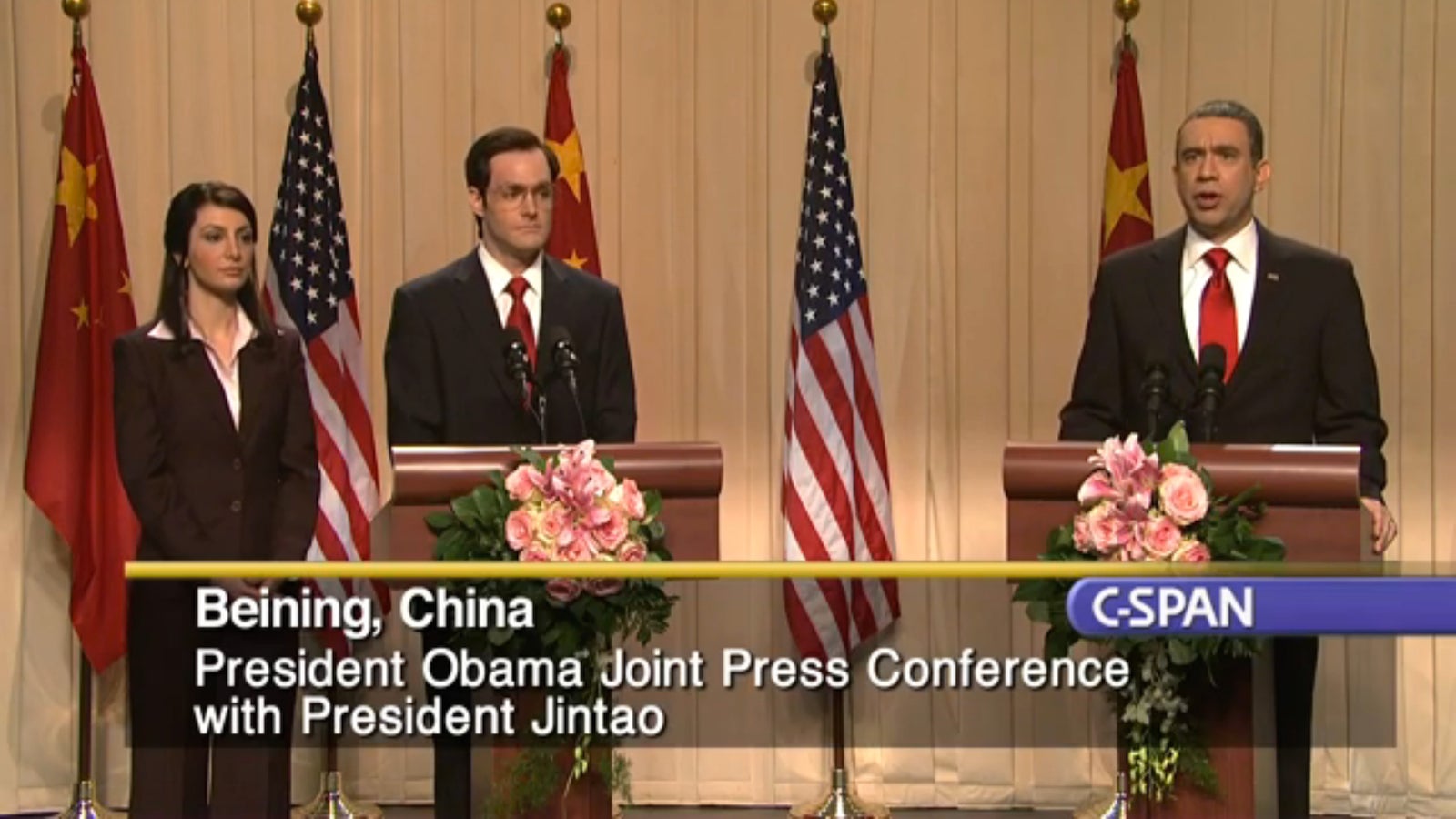Can China have its own Saturday Night Live?
First Spain, then Japan, now China is looking to replicate the success of SNL, the iconic American sketch-comedy show. National video streaming service Sohu.com announced earlier this month that it will be partnering up with Lorne Michaels to crank out a Chinese version of Saturday Night Live.


First Spain, then Japan, now China is looking to replicate the success of SNL, the iconic American sketch-comedy show. National video streaming service Sohu.com announced earlier this month that it will be partnering up with Lorne Michaels to crank out a Chinese version of Saturday Night Live.
While the US version of the show is already available through the NBC website, its Chinese counterpart plans on catering specifically to a domestic audience. Along with Michaels’ media company Broadway Video Entertainment, Sohu will recruit homegrown comedians to produce a show combining live music and sketch comedy, providing a “refreshing new option for Chinese viewers,” the company said in a statement.
The deal comes amid others established by Sohu in an attempt to scrounge up original content for China’s 649 million web users, a pool into which Michaels would no doubt happily dip his toes.
Western observers have naturally raised questions over the inclusion (or exclusion) of political satire in the Chinese version of the show. After all, SNL doesn’t just revel in political satire; it relies on the occasional crack smoking, gun-toting political lightening-rod as a source of unlimited comedic material. Some of the most popular, recurring characters on the show are caricatures of US political figures, like Tina Fey’s impression of Alaska governor Sarah Palin, Chevy Chase’s version of former president Gerald Ford, or Dan Akroyd’s iconic farce of former president Richard Nixon in an ape mask.
Could that happen in China, where many political scandals never even appear on the local evening news?
The Chinese government’s control of broadcast culture came under scrutiny in Nov. 2014, when the State Administration for Press, Publication, Radio, Film and Television announced a ban on the use of puns in radio and television. Critics cast the move as a crackdown on cleverly disguised political references, as web users commonly use puns to get around China’s internet censors when a specific topic or name has been blocked.
And since Chinese broadcaster Ningxia Satellite TV’s embarrassingly bad 2014 attempt to reproduce The Colbert Report’s format (mind, Colbert had no affiliation with it whatsoever), there’s little to suggest that US-style political humor would even fare well for SNL’s Chinese counterpart.
Satire is popular in Chinese humor, as long as performers stay within the boundaries of what’s seen as “politically acceptable,” according to Mark Rowswell, a media personality and comedic performer in China who goes by the stage name Dashan. “Those rules really depend on what media or venue you are talking about, just as in the US you can do all kinds of stuff online or in live clubs that would not be permitted on TV,” he explains.
Sketch comedy (xiaopin) has been popular on mainstream Chinese TV for several years, so in that respect, viewers won’t find the SNL format especially unique. A fresher, “edgier” comedy style in China has been associated with the emergence of tuokouxiu, which is ostensibly a transliteration of “talk show” but has become an umbrella term used to describe everything from stand-up comedy to talk show formats like The Daily Show.
“To be frank, I’m not sure what SNL can offer that the Chinese can’t and aren’t already trying to do themselves,” Rowswell says. “The SNL brand carries some weight, but really only among the minority of Chinese viewers that actively watch US comedy online—and that is a small portion of the overall viewership in China.”
Tuokouxiu is more freestyle in form, but while performers might use social issues as fodder for comedy material, nothing is overly explicit. Xi Jiangyue, the founder of the Beijing Tuokouxiu Club, told the The Economist that a typical stand-up joke going after a food scandal in China might go like this: “When I heard leather was being used to make yogurt I was really angry. We have so many poor people. Why can’t we use leather to make something useful like rice or condoms?”
Storm Xu, a stand-up comedian who performs regularly at Shanghai’s Kung Fu Komedy club, said TV hosts in China make jokes like this all the time. While blatant references to sex and politics are a no-no, “everything else, if taken with the right approach, should be fine.”
Jesse Appell, an American comedian in Beijing who performs in the traditional Chinese form as well as stand-up, explained in a previous interview with The Los Angeles Review of Books how a Chinese comedian might approach a sensitive issue—by “[ribbing] the results of a policy rather than the policy itself,” he said, adding that “It’s too direct at this point to say that the government has a bad policy and that created pollution. Instead, people make jokes about the pollution, and everyone knows why it’s there.”
Sohu vows that SNL’s Chinese counterpart will be “groundbreaking.” But Rowswell predicts that it will play by the same rules that everybody else does. “Of course the rules will change from time to time, back and forth, as they have over the past few decades,” said Rowswell. “Maybe SNL will end up playing a role in that evolution, but they will be only one of a number of players that are already in the game.”
Xu, meanwhile, plans to audition for the show, but said that he’d have to tweak his stand-up jokes to make the transition online. “They’re never gonna make it there,” he said with a laugh.